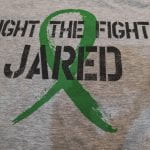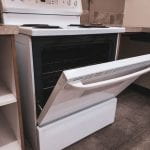Posted: Friday, September 23, 2016 3:00 pm
The life of a student can sometimes feel a lot like juggling, tightrope walking, and running a marathon—all at once! Jumping into a new class load is disorienting for everyone, whether you are coming back from a long summer break, transferring to Northwest University from another school, or journeying through your very first days in college. Establishing a good schedule and habits right from the start can make all the difference.
This fall, Talon copy editor, Sarah Ulrich, asked the faculty and student government for advice on how to survive and thrive in the student life. Here are the tips they offered:
Do: “Get a planner. Putting in every assignment when it’s due can relieve a lot of stress and help stay on top of it!”
Don’t: “Text in class. Most of the content on any exam will be what you hear in the classroom. Texting can definitely prevent that.”
-Sami Price (NUSG president)
Do: “Join a new club, try a new activity, and engage with new people.”
Don’t: “Forget to call your Mom or Dad once in a while. You will make their day!”
-Chrystal Helmcke (Director of Drama Concentration and Assistant Communication Professor)
Do: “Book an appointment on Eagle to visit our friendly writing center tutors in the library with the draft of an assignment in hand.”
Don’t: “Wait until an hour before the paper is due to come to see a writing tutor, hoping for a miracle. The earlier you can set the appointment before a deadline, the better!”
-Dr. Clint Bryan (Assistant Professor of English)
Do: “Learn to say ‘No, I have to study’,” – and DO find a place to study free from distractions.”
Don’t: “Get behind in your reading.”
-Greg Spyridis (Associate Professor of Chemistry)
Do: “Broaden your notion of friendship. Deeply explore the work of writers or thinkers or scholars that intrigue you. Become intellectual friends (even if they are no longer living).”
Don’t: “Go home every weekend. Saturdays are perfect for spontaneity and random fun. Try exploring this area and making home here in Kirkland.”
-Rick Engstrom (Dean of Student Development)
Do: “Be physically and mentally present every class session.”
Don’t: “Text or talk on a cell phone while driving, especially anywhere on or near a campus full of students.”
–Thor Tolo (Assistant Professor of Business)
Do: “Keep your door open! (If living in the dorms)”
Don’t: “Feel the pressure to attend EVERYTHING. You are still loved and seen even if you choose to stay and do homework.”
-Amanda Fox (Vice President of Marketing and Communication)
Do: “Drink lots of water because it helps your brain function better. It will definitely help you focus better in class, too.”
Don’t: “Forget to sleep. Set a good schedule to fit in everything you want to do in addition to getting a great night sleep. Sleep helps you function better all around, and it will help you learn!”
-Renee Bourdeaux (Assistant Professor of Communication)
Do: “Get involved in a local church.”
Don’t: “Walk by someone without a friendly smile. Create a welcoming atmosphere.”
-Hunter Hadfield (Director of Traditions)
Do: “Make a point of introducing yourself to the professor. Classes are increasing in size and it is getting harder for professors to know each individual student.”
Don’t: “Do not get behind in work early in the semester. Stay on top of your assignments and if something is confusing, ask the professor via e-mail for an explanation.”
-Larry Ishmael (Associate Professor of Business)
And then just some do’s:
Do: “Proofread your emails to your professors. Typos, emojis, and “u r a gr8 prof!” don’t exactly scream ‘I’m a serious student!’”
-Dr. Jeremy Delamarter (Assistant Professor, College of Education)
Do: “Ask questions of your professors and seek them out for advice, help, and mentorship.”
-Dr. Matt Nelson (Dean of College of Social and Behavioral Sciences & Professor of Psychology)
Do: “Pray for your professors. Be assured we do pray for you. Let’s face it—we both desperately need God’s help and guidance in our roles at school and all of life.”
-Dan Tomandl (Assistant Professor of Physics and Astronomy)









